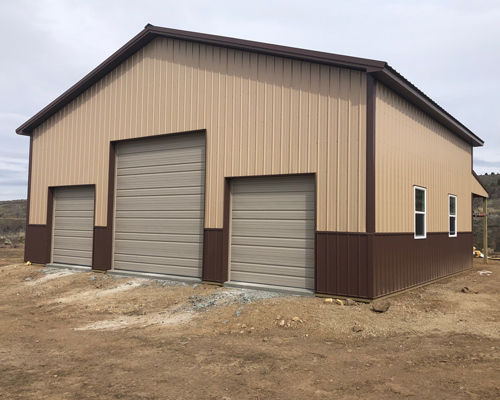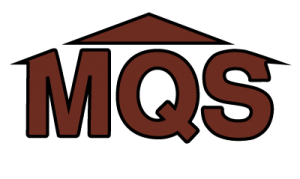Custom Pole Barn Builders in Benewah County—Are Pole Barns Hurricane Proof? — For Benewah County, Idaho, property owners find some weather-related difficulties along with the area’s beauty. Residents nevertheless experience intense windstorms, snow loads, and shifting seasonal conditions, even if hurricane-force winds are rare in this section of the nation. Many prospective owners of barns thus wonder, “Are pole barns stormproof?” It’s a reasonable inquiry that addresses more general issues with durability, safety, and long-term performance.
Our specialty at MQS Barn is creating post frame buildings in Benewah County and throughout Idaho. We also know how important it is to guard your investment from the elements. While no structure can be 100% hurricane-resistant, a well-designed and built pole barn may be erected to withstand strong wind and weather, often surpassing conventional construction norms.
Although we are well aware that hurricanes do not hit the Montana area, this article will simply explain the strength of a pole barn during the most challenging weather conditions.
- What “Hurricane Proof” Really Means
- Structural Strength Starts with Engineering
- Wind Load Ratings and Code Compliance
- Anchoring and Foundation Considerations
- Roofing and Siding That Stay in Place
- Design Choices That Improve Storm Performance
- Peace of Mind with a Trusted Builder
- Why Choose Custom Pole Barn Builders in Benewah County?
What “Hurricane Proof” Really Means
“Hurricane-proof” is a somewhat misleading term. Most post frame buildings in Benewah County—residential residences as well as commercial warehouses—are not totally resistant to the strongest hurricanes. They can be created and engineered, though, to resist certain wind speeds, pressure conditions, and lateral forces related to high-intensity storms. Local construction regulations, technical computations, and structural reinforcements define these thresholds.
In Benewah County, the more precise question may be: can a pole barn be built to resist the types of wind and storm events that periodically affect northern Idaho? The response is a confident yes, primarily if you work with a seasoned builder who understands how to strengthen post-frame buildings.

Structural Strength Starts with Engineering
The vertical poles, or poles, put into the ground to support the weight of the roof and walls, give pole barns their name. This design makes wide-open rooms possible, freeing load-bearing walls from need. Particularly when paired with appropriate bracing, metal connections, and shear panels, correctly constructed, this approach also provides amazing lateral strength.
Every building that custom pole barn builders in Benewah County create at MQS Barn starts with a unique engineering blueprint. Your pole barn will therefore be especially built to either meet or surpass Benewah County’s wind load criteria. This covers computing uplift resistance—that is, the roof does not lift off during a storm—lateral bracing to stop sway, and strengthened anchoring at all vital connection points.
Wind Load Ratings and Code Compliance
Benewah County adopts the International Building Code (IBC), which provides the benchmark for wind resistance in most areas. The particular location and topography of your property will affect the wind speed ratings. Certain places might need buildings to withstand more than 90 to 115 miles per hour of consistent winds.
We build our pole barns to satisfy those requirements. Our custom pole barn builders in Benewah County appropriately spaced purlins and girts, using trusses designed for wind uplift, metal siding, and roofing secured with screws certified for high wind resistance. We provide upgrade choices like extra diagonal bracing, heavy-duty doors, and hurricane clips at important frame connections in high-risk locations or for consumers seeking more peace of mind.
Anchoring and Foundation Considerations
Anchoring is among the most crucial elements of designing a wind-resistant pole barn. Pole barns are supported by posts buried in the ground, unlike conventional stick-built constructions, which depend on concrete slabs and footers. Posts can be anchored to built pier footings or buried straight into concrete and compacted earth.
Extra anchoring is essential in areas prone to hurricanes. Longer embedment depths, reinforced concrete collars around the posts, or steel bracket systems can all offer additional holding strength. These techniques guarantee the structure remains anchored even in high wind gusts or pressure changes.
Although Benewah County does not often see hurricanes, pressure systems and powerful winds from thunderstorms do exist. The methods we employ to strengthen pole barns in areas prone to hurricanes also fit Idaho’s storm seasons, providing added structural integrity and protection.
Roofing and Siding That Stay in Place
Roofing and siding are usually the first to collapse during high-wind occurrences, particularly if they are not constructed for uplift pressures or are fixed incorrectly. MQS Barn uses high-strength metal panels securely fastened with fasteners certified especially for wind performance. Edge trims and overlapping panels also help prevent water and wind from seeping under the roof or through the siding.
Our ridge tops and gable ends are strengthened with extra framing to prevent failure in the most sensitive regions of the structure, and our trusses are spaced and braced to minimize bending or buckling. These little architectural elements greatly affect whether a pole barn suffers major damage or moderate wear during a storm.
Design Choices That Improve Storm Performance
Should your project in Benewah County prioritize wind resistance, we will walk you through some wise design decisions. Eliminating tall cupolas or great overhangs will remove elements that often capture wind, and a lower-profile roof can help lessen wind drag. Another way to help reduce pressure accumulation is to orient doors on the leeward side of the dominant wind.
Reducing big windows or unbraced wall portions also helps the construction to be more generally stable. Many of our clients also choose strengthened sliding or overhead doors less prone to buckle or be blown off course in windstorms.
Peace of Mind with a Trusted Builder
Selecting custom pole barn builders in Benewah County involves working with a group that values structural integrity and durability. We don’t cut corners on materials or workmanship; our pole barns are built to satisfy the actual requirements of every project site. We have you covered if you live in Benewah County and search for a barn that can withstand everything nature sends your way—wind, rain, snow, etc.
Although no structure is absolutely hurricane-resistant, our pole barns are built for exceptional performance in severe conditions, thereby providing the peace of mind that your investment is safe and secure.
Why Choose Custom Pole Barn Builders in Benewah County?
Simply said, yes—pole barns may be constructed to resist other extreme weather occurrences like hurricane-strength winds in areas like Benewah County, Idaho, which translates into superior storm protection, enhanced durability, and a longer-lasting construction that performs just as hard as you do. Strength, in our opinion at MQS Barn, begins with clever design; so, we are pleased to provide structures that resist environmental conditions and age.
MQS Barn: Your One Source for Metal Buildings in Benewah County
Custom post-frame buildings and post-frame steel building construction in Benewah County are the areas of expertise for family-owned and run MQS Barn. We are here to realize your idea, whether your needs are for a large bespoke horse barn, a sturdy garage, a hobby shop, or another kind of metal building. We take great satisfaction in offering unique prefabricated barns in Benewah County and excellent workmanship that guarantees every project satisfies your demands and surpasses your expectations. When you’re ready to get going, we will closely assist you through each stage of the process to make sure your building is just what you want.

Searching for Amish barn builders in Benewah County? Beginning his construction career within his Amish Mennonite family, Mark Stoltzfus, co-founder and co-owner of MQS Barn, honed a strong work ethic and superior workmanship that he applies to every job. At MQS Barn, we create buildings that are as dependable as attractive by combining contemporary building methods with traditional characteristics.
Follow us on Facebook!
